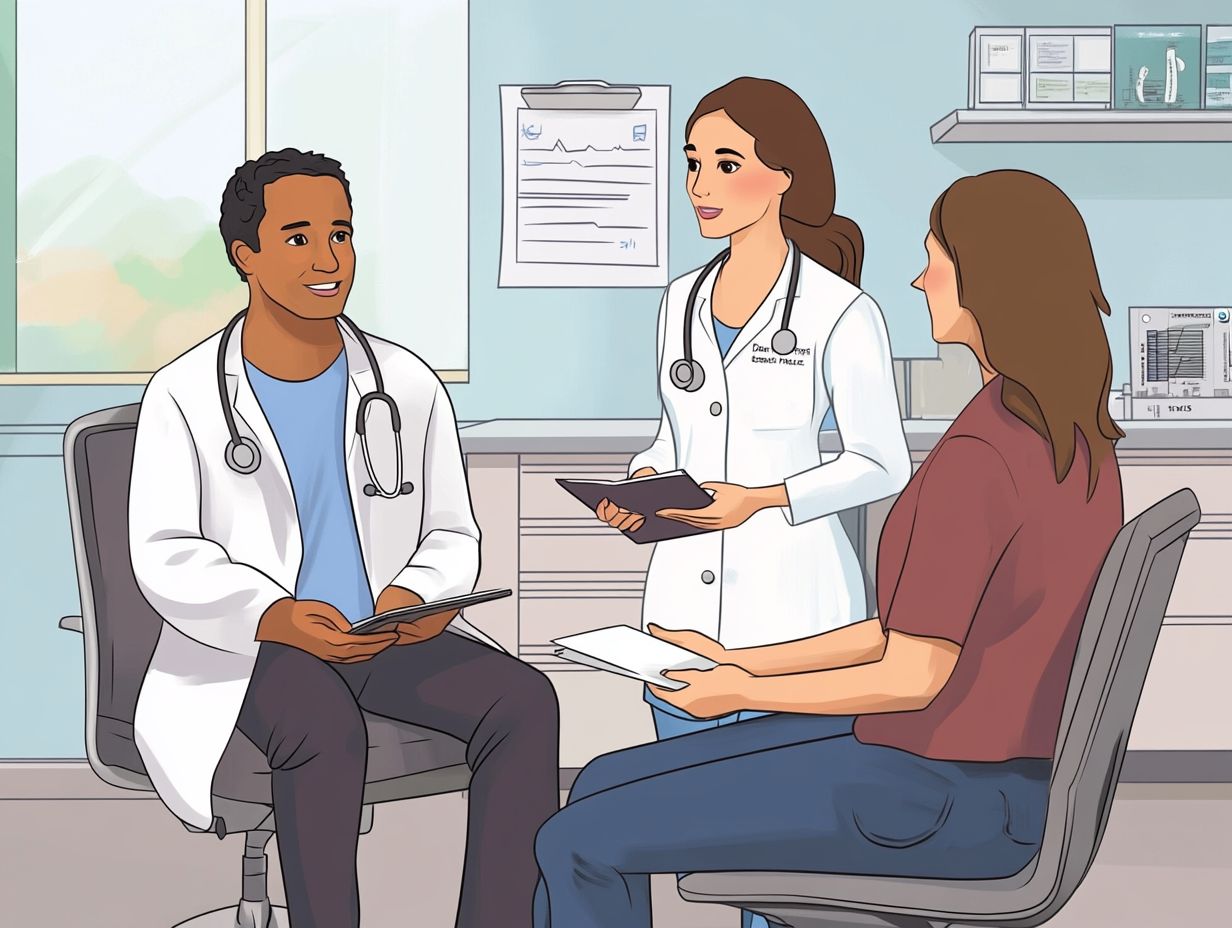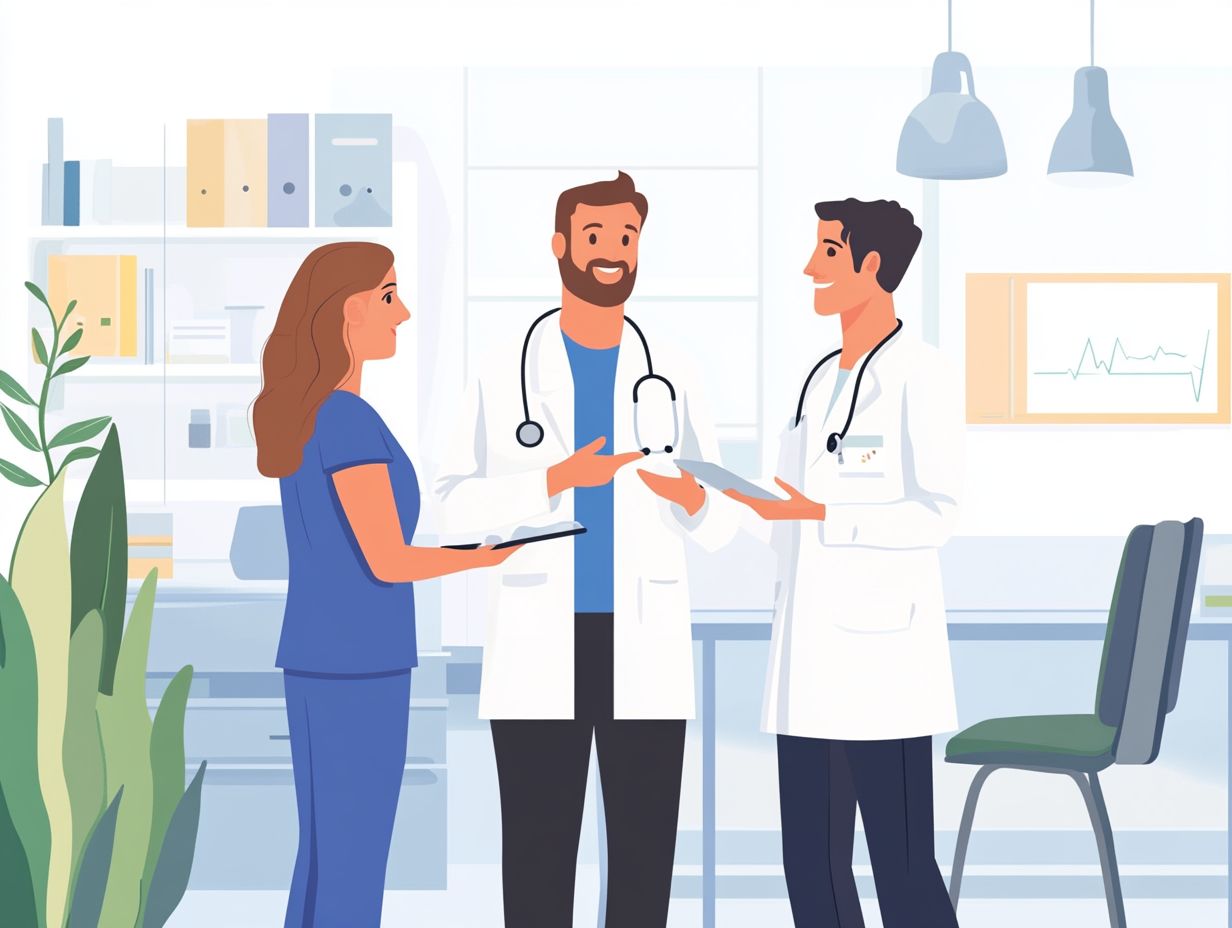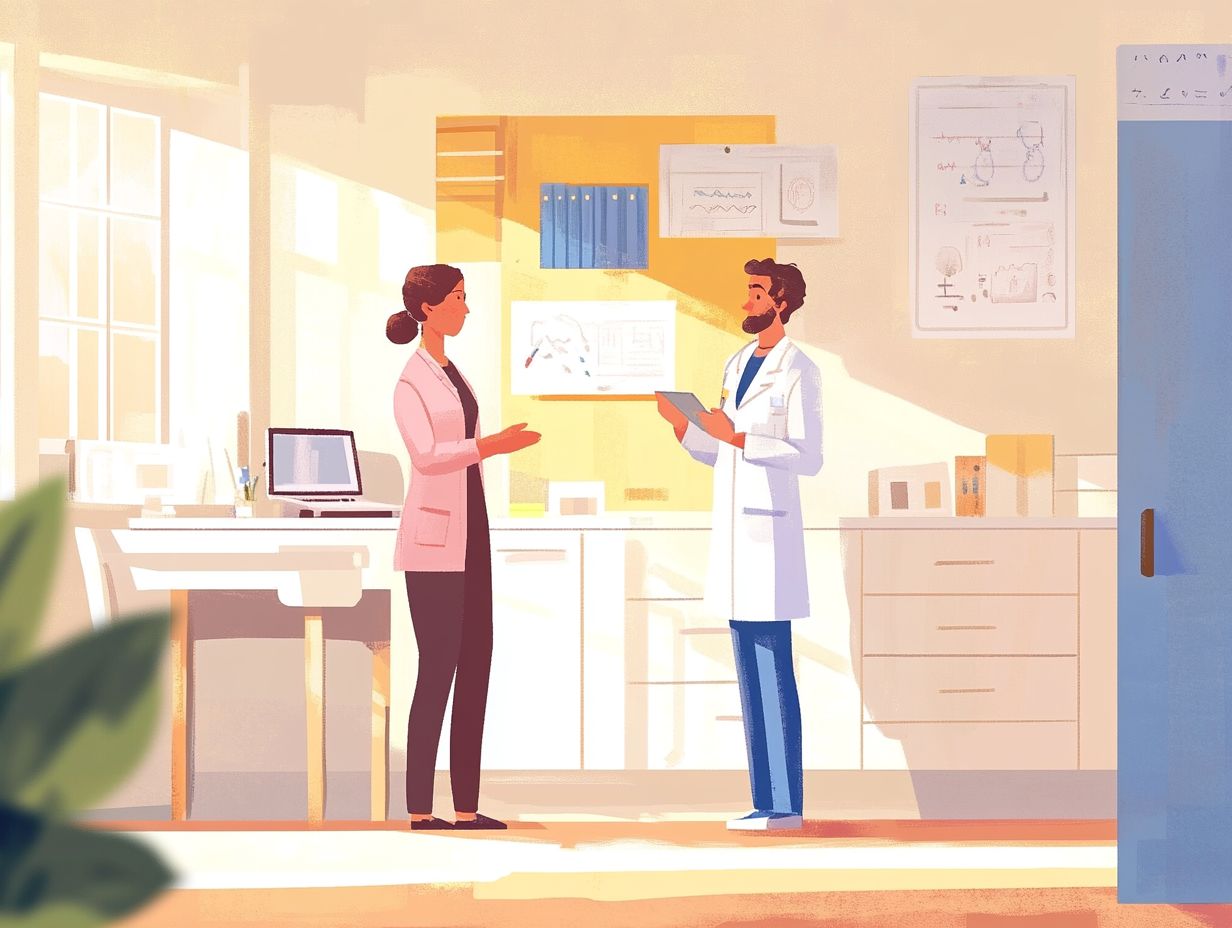Effective communication with your oncology care team is crucial for navigating the complexities of cancer treatment. Clear communication helps cancer patients understand their treatment plans, manage side effects, and address emotional issues. It fosters a supportive environment that enhances patient satisfaction and treatment outcomes.
Understanding the roles of your health care team members, including oncologists, nurses, and patient navigators, is vital. Each member plays a specific part in your cancer care, from developing treatment plans to providing emotional support and logistical help.
To improve communication, patients should express concerns clearly, ask specific questions, and keep their health information updated. Bringing a trusted family member to appointments and requesting summaries of discussions can further aid understanding.
Overcoming communication challenges, such as language barriers, emotional distress, and complex questions, is essential for effective dialogue.
Utilizing technology-based applications and support groups can also enhance communication, providing platforms for real-time updates and shared experiences. These tools, accessible via mobile devices, help bridge gaps in understanding, ensuring coordinated and compassionate care throughout your cancer journey.
Key Takeaways:
Importance of Communication in Oncology Care

Effective communication in oncology care is essential for navigating cancer treatment complexities.
Communication helps patients understand their treatment plan, manage side effects, and address emotional issues.
Clear communication also allows patients to share vital health information and receive emotional support.
Improved communication leads to better patient outcomes and satisfaction.
Benefits of Effective Communication
Effective communication in oncology care provides benefits such as reduced anxiety, better emotional support, and improved treatment outcomes for cancer patients.
It fosters a collaborative environment, enhances patient satisfaction, and enables patients to participate in care decisions.
Clear communication helps patients manage side effects and understand the treatment process.
This ongoing dialogue builds trust and reassurance, aiding patients in navigating their cancer journey with confidence.
Understanding Your Oncology Care Team
Understanding your health care team involves recognizing the roles of oncologists, nurses, patient navigators, and specialists in cancer treatment.
The oncology team works together to provide personalized care, with each member responsible for different aspects of the patient’s treatment journey.
- Oncologists develop and oversee treatment plans.
- Nurses administer medication and monitor progress.
- Patient navigators assist with logistical and emotional support.
Knowing these roles helps patients improve communication, verbalize concerns, and ensure coordinated care.
Roles and Responsibilities of Different Health Care Team Members
The oncologist oversees the overall treatment plan in an oncology health care team.
The nurse provides direct patient care.
The patient navigator assists with logistical support.
The medical assistant ensures timely preparation for treatments and assists with sharing information.
The social worker offers emotional support and counseling.
Each role contributes to a comprehensive, collaborative approach to cancer care, ensuring patients can navigate their healing journey with confidence.
Tips for Better Communication with Your Oncology Team
To improve communication with your oncology care team, clearly express concerns, ask specific questions, and regularly update your health care journal with medical information and notes.
Bring a family member or friend to appointments for support and note-taking.
Request written summaries of discussions for clarity, follow-up on unclear information promptly, and utilize reliable resources for additional support.
Active Listening and Clear Communication Strategies

Active listening and clear communication strategies are essential for effective dialogue between patients and oncology care teams.
Active listening involves listening attentively and asking clarifying questions, while clear communication means providing simple, jargon-free explanations.
These skills foster understanding, build trust, and improve patient satisfaction with their treatment plans and outcomes.
Asking Questions and Expressing Concerns
Patients must ask questions and express concerns about their diagnosis and treatment plan to build a productive relationship with their oncologist.
Asking questions helps patients understand their health journey and available options.
Expressing concerns aids in managing anxiety and fear, improving emotional well-being.
Engaging openly with health care providers leads to more tailored and effective treatment strategies and allows patients to advocate for their personal cancer journey.
Common Communication Challenges in Oncology Care
Communication challenges in oncology care include language barriers, cultural misunderstandings, and emotional distress.
These challenges can hinder effective communication between patients and healthcare providers, potentially affecting treatment adherence and patient satisfaction.
Addressing these issues involves using translation services, cultural competency training, and emotional support strategies.
Addressing Language Barriers and Cultural Differences
Language barriers and cultural differences can impede communication between patients and oncology teams, causing misunderstandings in treatment.
Healthcare providers can overcome these barriers by using professional translators and visual aids to make medical information more accessible.
Developing cultural competence, which involves understanding and respecting diverse patient backgrounds, enhances communication and trust.
These strategies help create an inclusive health care environment, improving patient outcomes and empathy towards diverse experiences.
Overcoming Emotional and Psychological Obstacles
Emotional and psychological obstacles can hinder a patient’s ability to communicate effectively with their oncology team.
These obstacles include feelings of anxiety, fear, and isolation, which can affect discussions about treatment options and personal concerns.
Providing emotional support from family and health care professionals can help patients express their needs and preferences more clearly, aiding in their coping strategies.
Recognizing and addressing emotional well-being can improve patient outcomes by enhancing communication, reducing distress, and promoting healing.
Tools and Resources for Improved Health Care Communication

Tools and resources for improved communication between patients and their oncology care teams include:
- Technology-Based Applications: Apps that facilitate direct messaging, appointment scheduling, and sharing of health care information.
- Support Groups: Online forums and in-person meetings for sharing experiences and advice.
- Patient Navigators: Professionals who guide patients through the healthcare system.
Support Groups and Counseling Services
Support groups provide emotional support and shared experiences for patients and families coping with cancer treatment.
Counseling services offer professional guidance to help individuals process emotions and develop resilience.
These resources create a safe space to share experiences, ease isolation, and promote effective communication.
Participation in support groups and counseling fosters coping strategies and enhances confidence and hope.
Using Technology and Communication Apps
Technology and communication apps allow patients to access health information and communicate with oncology teams using mobile devices.
These apps offer real-time messaging, appointment scheduling, and sharing of medical records.
Features include symptom tracking, medication reminders, telemedicine for virtual consultations, and secure sharing of health information and messages.
These tools enhance communication among oncologists, nurses, and support staff, improving patient engagement and health outcomes.
Frequently Asked Questions on Cancer Communication
How Can I Communicate Better with My Oncology Team?
Communicating effectively with your oncology care team is important for your cancer treatment. Here are some FAQs about improving communication with your oncology team and navigating your cancer journey.
Why is it important to communicate well with my oncology care team?

Effective communication is crucial for your cancer treatment. It helps ensure that you receive the best care, your needs and concerns are addressed, and you have the support of your health care team. Good communication also helps build trust and confidence in your oncology team.
What are some tips for communicating better with my oncology team?
Here are some tips to help improve communication with your oncology care team: Prepare questions and concerns before appointments, bring a trusted family member or friend to appointments, take notes during discussions, and be honest and open about your needs and concerns to better understand the treatment process.
How can I make sure my oncology team understands my needs and concerns?
One way to ensure your oncology team understands your needs and concerns is to use clear and specific language. When discussing your symptoms or concerns, be as detailed as possible. It can also be helpful to bring a written list of your questions and concerns to appointments.
What if I have trouble understanding my oncology team’s explanations or instructions?
If you have trouble understanding your oncology team’s explanations or instructions, don’t be afraid to ask for clarification. Your oncology team, including your doctor and nurse, wants to make sure you fully understand your treatment plan and any important information. Keep a journal of your health questions and concerns to better navigate your treatment process.
What if I am not comfortable discussing certain topics with my oncology team?
It’s important to remember that your oncology team is there to support you and help you through your cancer journey. If you are uncomfortable discussing certain topics, you can bring a loved one to the appointment for support or ask to speak with a different team member, such as an oncologist, nurse, or patient navigator, who you may feel more comfortable with. Verbalizing your concerns and specific questions can be an important step in getting the help you need from your health care team.
Where can I find additional resources for effective communication with my oncology team?
Your oncology team may have resources available for improving communication, such as brochures or online guides. You can also ask for recommendations from your healthcare provider or support groups for cancer patients. Additionally, there are online resources and books available on effective communication with healthcare professionals. Consider using a mobile device to take notes during your appointments, and don’t hesitate to ask about clinical trials, specific coping strategies, or emotional support resources. Reliable resources like the American Cancer Society and the National Cancer Institute can also provide valuable health information and communication strategies to help you and your family during this journey.





